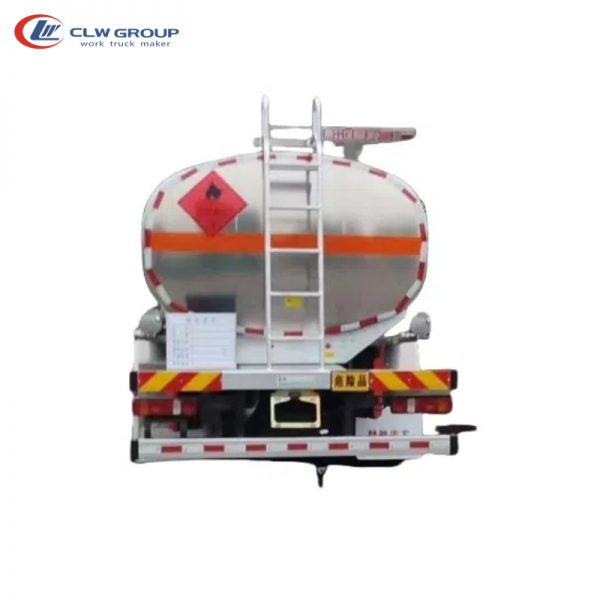Introduction
Garbage compactor trucks play a vital role in waste management systems, efficiently collecting and compacting waste to transport it to disposal sites. These specialized vehicles require regular maintenance to ensure optimal performance and longevity. In this comprehensive guide, we will delve into the various aspects of garbage compactor truck maintenance, from routine checks to troubleshooting common issues, to help fleet managers and maintenance personnel keep these essential vehicles in top condition.
Chapter 1: Understanding Garbage Compactor Trucks
Before delving into maintenance practices, it is essential to understand the components and operation of garbage compactor trucks. These trucks typically consist of a chassis, a compactor body, a hydraulic system, and various mechanical components. The compactor body is equipped with a blade or packer that compresses the waste to maximize the truck's carrying capacity. The hydraulic system powers the compaction mechanism and other functions of the truck.

Chapter 2: Routine Maintenance Schedule
Regular maintenance is crucial to prevent breakdowns and ensure the efficient operation of garbage compactor trucks. A comprehensive maintenance schedule should include daily, weekly, monthly, and annual checks. Daily inspections may include checking fluid levels, inspecting tires, and testing lights and warning signals. Weekly maintenance tasks could involve inspecting hydraulic hoses, lubricating moving parts, and checking for leaks. Monthly checks may include servicing the engine, checking the compaction mechanism, and inspecting the body for damage. Annual maintenance should involve a thorough inspection of all components, replacement of worn parts, and testing of safety features.
Chapter 3: Fluid Checks and Changes
Fluids play a vital role in the operation of garbage compactor trucks. Regularly checking and changing fluids such as engine oil, hydraulic fluid, coolant, and transmission fluid is essential to prevent damage and ensure smooth operation. Over time, contaminants and debris can accumulate in the fluids, leading to decreased performance and potential damage to components. By following the manufacturer's recommendations for fluid types and change intervals, maintenance personnel can extend the life of the truck and avoid costly repairs.
Chapter 4: Hydraulic System Maintenance
The hydraulic system is a critical component of garbage compactor trucks, powering the compaction mechanism and other functions. Regular maintenance of the hydraulic system is essential to prevent leaks, malfunctions, and downtime. Maintenance tasks may include inspecting hoses and fittings for wear, checking fluid levels, and testing the operation of the system. Proper maintenance of the hydraulic system can prolong the life of components, ensure efficient operation, and prevent safety hazards.
Chapter 5: Compaction Mechanism Inspection
The compaction mechanism is at the heart of garbage compactor trucks, allowing them to maximize waste storage capacity. Regular inspection and maintenance of the compaction mechanism are crucial to ensure proper function and prevent breakdowns. Maintenance tasks may include checking the blade or packer for wear, inspecting guides and rails for damage, and lubricating moving parts. By keeping Sweeper trucks driver assistance systems in top condition, maintenance personnel can optimize the truck's performance and efficiency.
Chapter 6: Electrical System Checks
The electrical system of garbage compactor trucks controls various functions, including lights, warning signals, and the operation of the compaction mechanism. Regular checks of the electrical system are essential to ensure safety and proper operation. Maintenance tasks may include testing lights and signals, inspecting wiring for damage, and checking battery health. Addressing electrical issues promptly can prevent accidents, downtime, and costly repairs.
Chapter 7: Tire and Wheel Maintenance
Tires and wheels are crucial components of garbage compactor trucks, providing traction, stability, and support for the vehicle. Regular maintenance of tires and wheels is essential to prevent blowouts, accidents, and premature wear. Maintenance tasks may include checking tire pressure, inspecting treads for wear, and tightening lug nuts. Proper maintenance of tires and wheels can improve fuel efficiency, prolong tire life, and ensure safe operation of the truck.
Chapter 8: Troubleshooting Common Issues
Despite regular maintenance, garbage compactor trucks may experience common issues that require troubleshooting. Some common problems include hydraulic leaks, compaction mechanism malfunctions, electrical failures, and engine issues. By understanding the underlying causes of these issues and following a systematic troubleshooting process, maintenance personnel can identify and resolve problems efficiently. Regular training and access to technical resources can help maintenance personnel address issues promptly and keep garbage compactor trucks operational.
Chapter 9: Training and Resources for Maintenance Personnel
Effective maintenance of garbage compactor trucks requires skilled personnel who are trained in the operation and maintenance of these specialized vehicles. Providing ongoing training and access to resources such as service manuals, technical support, and diagnostic tools is essential to equip maintenance personnel with the knowledge and skills needed to keep trucks in top condition. Training programs may cover maintenance procedures, troubleshooting techniques, safety protocols, and regulatory compliance. By investing in training and resources for maintenance personnel, fleet managers can ensure the reliable operation of garbage compactor trucks and maximize their lifespan.
Conclusion
Garbage compactor trucks are essential vehicles in waste management systems, and proper maintenance is crucial to ensure their efficient operation and longevity. By following a comprehensive maintenance schedule, checking fluids, inspecting components, troubleshooting issues, and investing in training for maintenance personnel, fleet managers can keep garbage compactor trucks in top condition. Regular maintenance not only prevents breakdowns and costly repairs but also improves safety, efficiency, and overall performance. By prioritizing maintenance practices, fleet managers can maximize the lifespan of garbage compactor trucks and ensure the effective management of waste in communities.
